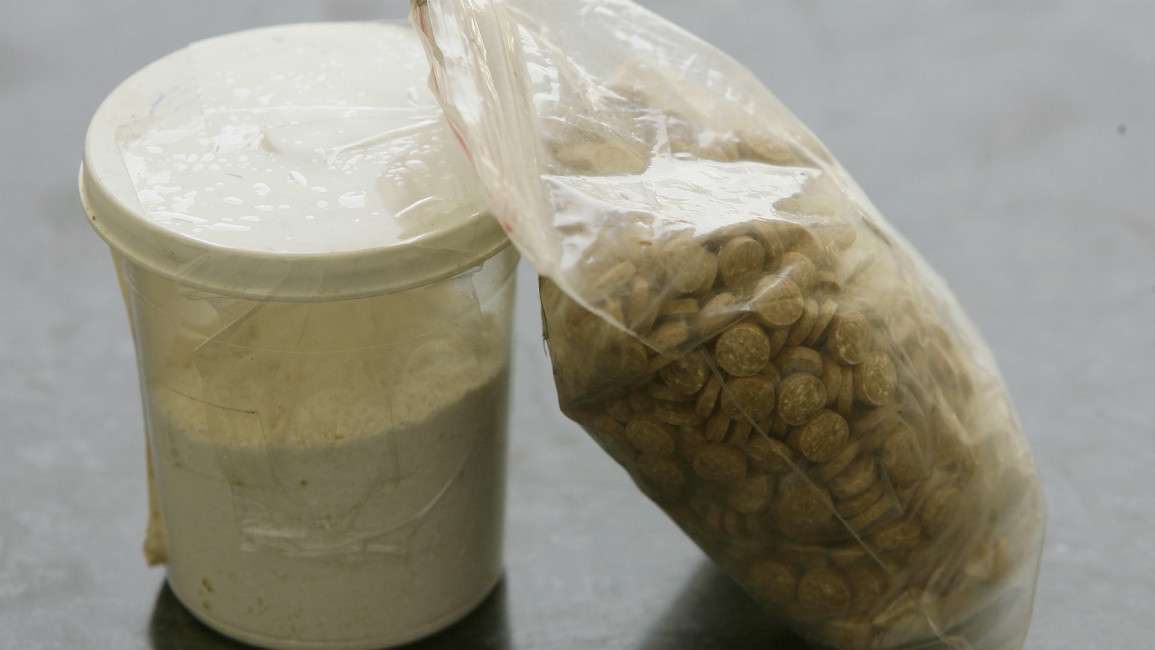US-backed Syrian rebels seize 'jihadi pills' in IS drug bust
US-backed Syrian rebels seized a massive drug stash of "Jihadi pill" Captagon during operations against the Islamic State group.
Maghawir al-Thawra, a rebel faction trained by both the US and Jordan, captured and destroyed the narcotics on 31 May in southeast Syria, according to a statement on Monday.
The drugs were estimated to have a black market value of around $1.4 million.
"The cache included more than 300,000 pills of Captagon, an illegal drug frequently trafficked and used by Daesh members," it said, using the Arabic acronym for IS.
They were seized during Maghawir al-Thawra's operations surrounding the Al-Tanf base, which lies along Syria's border with Jordan. For at least two years, British and US commandos have been training and advising rebels fighting IS from Al-Tanf.
A 34-mile de-confliction zone around the garrison is meant to serve as a buffer between US-backed forces and fighters loyal to Syria's regime.
The US-led coalition said the seizure of the drugs happened within the zone.
| Facebook Post |
Maghawir al-Thawra announced the drug bust last week in a dramatic video published on its Facebook page. It included stills of dozens of plastic bags filled with yellow and white pills, which were later shown being set on fire.
Captagon is classified by the UN Office on Drugs and Crime as an "amphetamine-type stimulant" and usually blends amphetamines, caffeine and other substances. Fighters who take it say it helps them stay awake for days and that it numbs their senses, allowing them to kill with abandon.
The drug was invented in Germany in the 1960s to treat ADHD and sleep disorders. A highly addictive substance, it was banned throughout most of the world in the 1980s.
Captagon remains popular in the Middle East, and Saudis consume more of the drug than anywhere else in the world. It is now made predominately in Syria.
Follow us on Twitter: @The_NewArab



